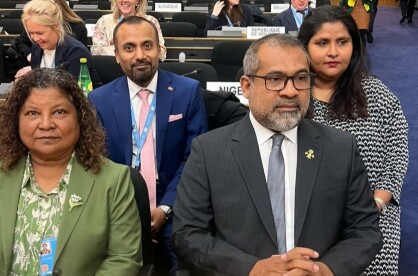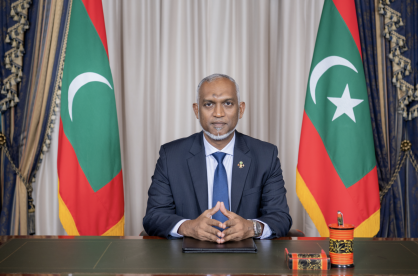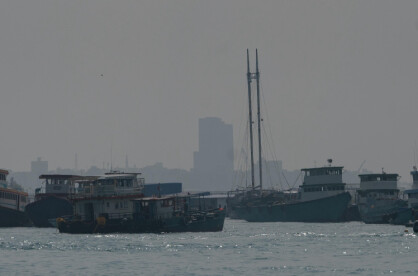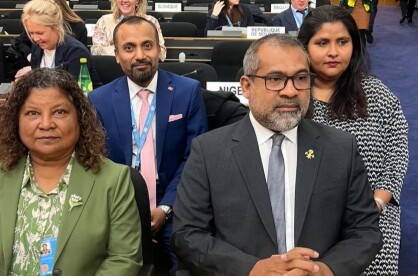Keeping expenditure in check, and long-term oriented fiscal
reforms have never been on the agenda of the Solih administration, as evidenced
from the most recent 2023 fiscal numbers. With increased tax rate from 12 to 16
percent from the tourism sector GST, and the GST rate of all other sectors from
6 percent to 8 percent, from 01st January 2023, the total revenue
has reached to over MVR 6.4 billion (USD 412 million) as at 09 March 2023. Last
year, during the same period, the total revenue recorded was MVR 5.2 billion
(USD 340 million). This is a 21 percent increase in total revenue of the
government.
However, unsurprisingly, the Solih administration has spent an
eye-watering MVR 7.7 billion (USD 500 million) as at 09 March 2023, which is 19
percent higher than the same period last year.
As of 09 March 2023, the weekly spending rate of Solih is at
MVR 110 million per week, compared to MVR 92 million per week same period last
year.
How did Solih spend the increased tax revenue? It might be too
early to see any exact pattern in the spending, with the published data as at
09 March 2023, over 73 percent of the spending has been on recurrent expenditure.
The administrative expenses have increase by about MVR 706
million (24 percent ) to reach MVR 3.6 billion. Notable areas of significant
increase during the first 10 weeks of the year are, the Special Budget under
the Ministry of Finance, which has recorded over to MVR 2.8 billion. Spending
through National Social Protection Agency (NSPA) has reached 626 million from
MVR 427 million last year same period. Maldives Police Services has also a
significant increase in spending to reach MVR 349 million compared to MVR 228
million last year.
Recovery from COVID pandemic
COVID-19 hit hard the Maldives economy, when the tourism industry
and almost the entire economy came to a stand still in April 2020. The monthly government
revenue fell to MVR 673 million in April 2020 from MVR 1.4 billion in March.
With not enough government revenue, and with non-existent
fiscal reserve at hand, the Minister of Finance had no other option except for accumulating
debt. The total debt as a result climbed to MVR 86.5 billion by the end of 2020
from MVR 68 billion in 2019. With GDP shrinking to MVR 57.6 billion in 2020
from MVR 86 billion in 2019, the total debt to GDP climbed to a staggering 150
percent of GDP. Well, that is still manageable, as the tourism sector was recovering,
and so were all industries in the economy. Government revenue has started to increase
as well.
By the end of 2021, Maldives has attracted over 1.3 million tourists,
and by end of 2022 achieved the pre-pandemic level of arrivals, by recording
over 1.67 million arrivals.
Despite the over MVR 21 billion total revenue in 2021, the
Solih administration ended up spending over MVR 32 billion – all under the guise
of COVID pandemic. Similarly, total revenue in 2022 reached MVR 28.5 billion,
however, government spent over MVR 39.9 billion the same year. As a senior official
at the Ministry of Finance who preferred to be unnamed commented “rather than using
the pandemic as an opportunity to bring about long term fiscal reforms, the government
saw the pandemic as an opportunity to appropriate funds as they wished - to gain the biggest political advantage”.
As per the approved budget for 2023, there will be over MVR
8.6 billion fiscal deficit by the end of the year, and a total foreign
financing requirement of over MVR 4.7 billion (USD303 million).
While the government has a fiduciary responsibility to
uphold the highest standards to use taxpayers’ money according to the intended
purpose and legislation - it has to be spent in a manner that brings about long term fiscal
sustainability. This means, increased tax revenue to be utilized in a way that
can reduce the existing and future debt levels of the country – instead of
wasteful spending to achieve political ambitions.







